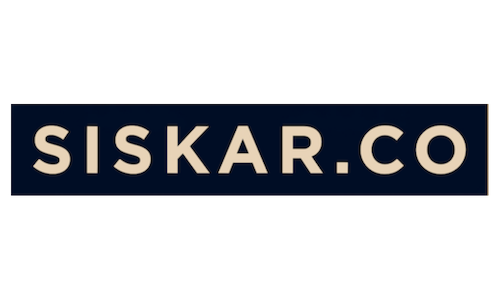
How Ideas And Things Spread
Last week someone told me to listen to a new episode from the Ted Radio Hour podcast called "How Things Spread". Cognitive Neuroscientist Sophie Scott, marketing genius Seth Godin, President Bill Clinton, and more weigh in on the various ways ideas and things spread throughout the world.
Last week someone told me to listen to a new episode from the Ted Radio Hour podcast called "How Things Spread". After listening to Cognitive Neuroscientist Sophie Scott, marketing genius Seth Godin, President Bill Clinton, and more weigh in on the various ways ideas and things spread throughout the world I felt it was worth sharing it was so interesting. By looking at how laughter, viruses, products, death, and the human species itself has spread throughout the world you can start to see the profound and hidden ways all humans are connected. At the basis of all economic, religion, or political systems you will find a powerful and convincing story that enables flexible cooperation of humans beings in large numbers. Tapping into that understanding with your own life and business can be a powerful tool to have. Here is the link to check out "How Things Spread":
Spireworks & The Value Of Exclusivity: How An Invite Only App Controls New York’s Skyline
From almost anywhere in New York City you can see the colored antenna's on top of One Bryant Park and Four Times Square. They are a definite part of the New York City skyline and every few moments they change color.
From almost anywhere in New York City you can see the colored antenna's on top of One Bryant Park and Four Times Square. They are a definite part of the New York City skyline and every few moments they change color.
I recently heard a story from a friend of mine who was at a party in New York City. The host of the event he was at pulled his phone out of his pocket and instructed my friend to pick a color on the screen. He pressed purple. The host then instructed him to look up toward the top of an actual skyscraper in Midtown Manhattan. The antenna at the top of One Bryant Park had changed to the color purple. There was a moment of disbelief.
The idea that the hosts phone was actually controlling the colors at the top of real world skyscrapers seemed unreal. Could you imagine the ability to carry with you a button in your pocket that could at any moment you see fit, alter the colors of the New York skyline for all to see from New Jersey to the Bronx, to Long Island.
Believe it or not, that app exists and it is called Spireworks. It was made by The Durst Organization who developed and owns several office towers in New York City. The Spireworks app has been in beta and invite only since it's live launch in 2010. All in all only a few hundred people are rumored to have access to the Spireworks app. Now I am going to go out on a limb here and guess that after hearing that story you want a Spireworks invite. I know I did.
While I patiently waited for the day I could bet strangers that the top of a sky scraper is going to change to a specific color and then be right, the real lesson here lies in the value of exclusivity. The Spireworks app is a real world example of that. So is the English Royal family abroad, the Navy Seals here in the United States, and all the Country Clubs I bartended at in order to put myself through college. A lesson that startups should use to their advantage.
The best part is that when you release a new product you can actually create and then apply this value in order to use it to your advantage. You will turn what should be an inherent weakness in your offering, the fact that no one has access to your product yet because they simply do not know about it, into an advantage whereas the new reason no one has access to your product is because they simply haven't been invited yet. This changes the dynamic of the normal relationship people have with products. In the exclusive scenario the responsibility to "get" the product falls on the end customers ability to chase after it via tracking down an invite code.
A few companies have done a great job at this recently. Regardless of the end story, the Google Glass Explorers Program did a tremendously successful job at fostering early adoption even though the price was over $1,500. Beme launched it's new app with user referral unlock codes that created a frenzy to the point where people were selling the unlock codes for cash online. Most recently the new game @getstolen, where can own your friends Twitter profiles, tweets out one unlock code for only 500-1,000 people each day.
🔑🔑🔑they don't WANT u 2 have a #StolenCode, so we gonna GIVE you a code -> "MADLUV" FAN LUV BLESS UP 🔑🔑🔑
— Stolen! (@getstolen) January 10, 2016Creating and leveraging the power of exclusivity can be a powerful tool. Spireworks invite only system is one of the best examples of that. Creating exclusivity gives you the ability to throttle the number of early users while still ironing out your core product. It turns a weakness around awareness into a strength. Also, it can result in increased promotion via word of mouth virality of your product. Lastly it attracts higher quality and more engaged users of your product which will be exponentially more useful to your initial product iterations and refinement.
The Single Biggest Reason Why Startups Succeed
I was recently watching Charlie Kim, founder and CEO of Next Jump, presenting at the Founder Institute. During his talk he cited a TED talk by Bill Gross titled "The Single Biggest Reason Why Startups Succeed".
I was recently watching Charlie Kim, founder and CEO of Next Jump, presenting at the Founder Institute. During his talk he cited a TED talk by Bill Gross titled "The Single Biggest Reason Why Startups Succeed". I found the talk and enjoyed it so much I thought I would share it. You can find the link to it by clicking here.
Bill wanted to find out what is the single biggest reason startups succeed. He analyzed 200 companies. For each company he looked at the business traits of Funding, Business Model, Idea, Team, and Timing to determine which traits correlated most to its success. The quick synopsis is that the Bill Gross study showed that Timing (42%) is the single most important factor in a why a startup succeeds. Followed by Team (32%), Idea (28%), Business Model (24%), and lastly Funding at (14%).
What do you think? Agree? Disagree? Let me know in the comments below.







